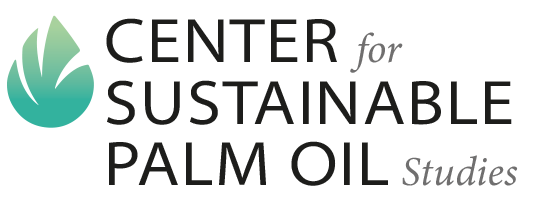
Industry, civil society call on the EU to adopt a smart mix of measures to address deforestation
It feeds us, it is a key part of the agricultural supply chain, it fuels our vehicles and it has become increasingly sustainable. But perceptions of palm oil remain colored. In recent years, the palm oil industry has known a remarkable transformation. How can the EU help the industry go even further and help transform the agri-commodity trade globally?
With imports worth upward of €6 billion, the EU is one of the world’s largest markets for palm oil. The oil palm tree is one of the world’s largest sources of edible oil. It is also one of the highest yielding by land footprint, with an average yield of 3.7 tons per hectare, compared to just 0.7 tons for rapeseed oil, 0.6 tons for sunflower oil, and 0.4 tons for soybean oil.
Demand is growing rapidly: the global market is expected to grow by more than 5 percent every year over the next five years. In Indonesia alone, the palm oil sector provides livelihoods to 2.7 million smallholder farmers and supports at least 14 million jobs overall, according to the Indonesian government.
Yet the public perception of the industry has been affected by practices by some operators that are non-sustainable and, in some cases, environmentally damaging and unethical. As palm oil is grown in the tropics, there are justified concerns about deforestation, the impact on ecosystems and biodiversity, and negative impacts on local communities. The EU, with the implementation of its Communication on Stepping up EU Action to Protect and Restore the World’s Forests (2019), the EU is in a unique position to address these issues and support the elimination of deforestation, building on the progress made by industry leaders in strengthening sustainability and protecting the environment.
Progress on sustainability
The palm oil sector is being reshaped and is greener than ever. The proportion of deforestation attributable to palm oil has historically been lower than many might expect (accounting for just over 10 percent of the total in Indonesia between 1990 and 2005), and has fallen further, dropping by around 80 percent between 2009 and 2016. Less than 6 percent of deforestation in Indonesia in 2016 was caused by palm oil companies. Despite this significant progress, deforestation still occurs and this is unacceptable. However, small-scale agriculture has grown as a driver of deforestation, and small-scale palm oil producers are among those contributing.
As of 2016, nearly 20 percent of palm oil fruit grown was produced by companies adhering to voluntary sustainability certification standards, according to the International Institute for Sustainable Development. In 2019, 86 percent of palm oil imported into Europe was certified sustainable. To mainstream sustainability, both on the producer and the buyer side, much more can be done.
Support from EU needed
Thanks to its proactive adoption of policies that promote transparency and traceability and conserve high-carbon stock areas, the palm oil industry is on track to delink production from deforestation. Yet the industry needs support from the EU — a major consuming market and a global policy leader — to achieve universal adoption of sustainability and community engagement practices.
A large group of companies involved in forest-positive supply chains, backed by NGOs and supported by the Tropical Forest Alliance (TFA), are calling for the EU to adopt a “smart mix” of measures to protect and restore the world’s forests, from its position as a major importer and a global leader in policymaking. These policies build on progress made by the sector and dovetail with the EU’s own Green Deal. By taking the lead, the EU can deliver on its global commitments to the environment and support many of its own businesses, which have been frontrunners in achieving sustainable, deforestation-free growth.
“There is no silver bullet that will end deforestation,” says Justin Adams, executive director of the TFA. “Only through collaboration and collective action can we solve this complex challenge. The joint endorsement of the TFA position paper by more than 50 of the world’s largest retailers, brands, traders and producers of forest-risk commodities is a strong demonstration of the mobilization of private-sector actors along the supply chain in favor of ambitious EU measures to tackle deforestation.”
The five elements of the “smart mix” are: partnership between the EU and producer countries; demand-side measures including due diligence; dialogue with other consumer countries; sustainable finance and investment; and robust verification systems.
These are not straightforward goals, but they are essential to protect the precious tropical ecosystems that are unique to our planet. They are also achievable through partnership between the EU and the private sector. Along the entire supply chain, financial institutions and regulators must take a more proactive approach to sustainable activities globally.
“We support EU action that will complement efforts by companies to achieve no-deforestation”, says Bart Vandewaetere, vice president for corporate communications and government relations at Nestlé EMENA. “An EU smart mix of measures should incentivize transparency and collaboration at all levels of the supply chain to protect forests, farmers and communities.”
Strengthening due diligence
Comprehensive due diligence requirements should incentivize companies to disclose the issues and risks they face along their value chain and to take action to mitigate and address them, with a view to driving continual improvement and strengthening global commodity supply chains.
The time to build this partnership and drive change to save tropical ecosystems is now. The industry wants to see the EU take leadership in a global approach to better environmental, social and governance standards in the global agri-commodity trade, to engage other major markets and to avoid merely shifting unsustainable products elsewhere. There is a window of opportunity for the EU to complete the sector’s transformation.
Models of sustainable practice
Models of sustainable practice are already in place: EU policymakers can look to the progress made by industry in sustainability over the past decade.
Singapore-based Golden Agri-Resources (GAR), one of the world’s largest palm oil plantation owners, in collaboration with the Earthworm Foundation (previously The Forest Trust) and Nestlé has innovated good sustainability practices in the past 10 years, based on partnership with communities and government.
GAR was one of the first major agri-businesses in the world to publish a Forest Conservation Policy, developed in partnership with the Earthworm Foundation. The policy aims to ensure that the company’s operations are deforestation-free, traceable, and bring benefits to communities where GAR operates. The company has set aside 72,000 hectares — an area the size of Singapore — for conservation. Having implemented the stringent requirements of its conservation policy on its own land, GAR has been rolling it out throughout its supply chain.
Acknowledging the importance of tropical forest as a global carbon sink, GAR has pioneered the high-carbon stock (HCS) approach. By identifying the areas of primary forest and regenerating forest, the company can ring-fence them and protect them from plantation development. Today, the HCS methodology has become an industry standard, being adopted by leading sustainability certification schemes.
Given the trend of increasing deforestation outside of company concessions, GAR takes an intensive consultative approach with communities living near its operations to map their village boundaries, identify areas for community use and set aside forests for conservation. The company also supports sustainable livelihoods, for example, by training communities to intensify organic food production. Community members benefit from improved food security and nutrition, while selling excess production for an additional income.
Market leaders in the palm oil industry have already shown how more sustainable practices, combined with engagement with local and international stakeholders, can bring real and rapid environmental and social benefits while retaining strong profitability. The EU now has the opportunity to widen the adoption of these practices, as part of its broader green agenda.
By Politico Studio
Original link: https://www.politico.eu/sponsored-content/the-palm-oil-industry-is-changing-and-the-eu-can-help/


